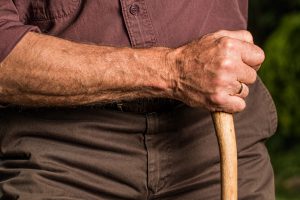It is important for people of all ages to keep active and exercise in order to maintain a healthy life. This is especially true for seniors, as long as it is in a safe manner. Studies have shown that seniors who walk at least 4 hours a week are less likely to be hospitalized due to heart issues. Hiking is one way to get out for a walk and are softer on joints instead of concrete. There are multiple benefits to hiking, but there are also precautions to keep in mind.

Benefits
Hiking has many benefits for your overall physical and mental health. It improves the circulation of blood flow through your body which improves your heart health. Hiking is safe for seniors that can walk on their own ss long as you go on a safe, approved trail. Walking the trail will help your muscle strength and bone density, ultimately reducing the risk of osteoporosis and other bone diseases. On top of helping you physically studies have shown that hiking twice a week increases cognitive function such as better memory.
Nature walks can lower depression and feelings of isolation, especially if going with a hiking partner. Make this a group or family hobby to really get all of the benefits of hiking, and to make memories with your loved ones.
Safety Tips
Always check with your doctor and make sure it is safe for you to start walking and hiking.
Dress accordingly in order not to overheat, or in some cases freeze, and make sure that you have no-slip grip shoes so you do not slip or fall.
Take short hikes if you are a beginner so you don’t overexert yourself. Once you have been steadily hiking for about half an hour and you feel more comfortable you can add more time. Take your time on hikes, even if you are part of a group, do it at your own pace.

Drink plenty of water when hiking and carry extra bottles so you can stay hydrated. Make sure you use sunscreen to protect your skin from harmful UV rays.
Be sure to let someone know when and where you are going on a hike so someone is aware in case you get hurt and cannot contact anyone for help. Carry a first-aid kit with you to treat minor issues.
Stretch and do some warm-ups before hiking so you can loosen up your muscles.
Use a mobility aid such as a stick or hiking pole to help you with balance or assistance, especially going uphill or downhill.
Hiking is not considered a rigorous activity, but instead another form of walking through nature or trails at your own pace. Exercising and staying in shape is ideal for living a healthier life, and hiking is a perfect way to get out and get moving. You not only get out and work your muscles, heart, and joints, but you also get to go out and socialize.
Before you get started always remember to check with your doctor before starting any exercise routine.


